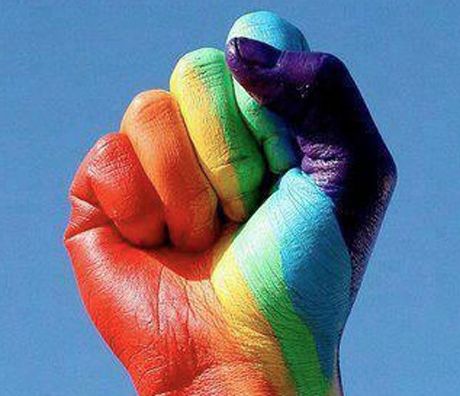Columns
You are here
Austerity and the fight against LGBT oppression

June 28, 2013
“Operation Zeus in August last year marked the start of an ugly reminder of a European past that we thought we had long buried. Nearly 60 years after the end of the Second European War, migrants were round up from the streets of Greece and shoved unceremoniously into internment camps. In May, women working in the sex industry were pulled from the streets, forcibly tested for HIV, publically humiliated and imprisoned. In March, they rounded up drug users from the streets of Athens and put them too into camps. Last month in Thessaloniki they came for transgendered people.”
This quote is from an article entitled “…and then they came for the trans* people”, written by Mhairi McAlpine. It is a lesson for all of us about why we need solidarity among the oppressed to combat the austerity agenda and its attacks on all of us.
Austerity and oppression
In Greece we’ve seen both effects of the austerity agenda: workers and the poor rising to fight back against attempts to savage their jobs, services and lives; and the ugly backlash, represented by the rise of the fascist Golden Dawn. Golden Dawn is attempting to turn people’s anger and despair at the economic devastation of their lives against groups such as immigrants, women, people of colour and the LGBT community.
Pride this year needs to be a celebration of our solidarity against attempts to divide us one from the other. Just like the civil rights and women’s liberation movements of the 1960s, the Gay Liberation Front (GLF) was born as a movement which saw itself as a part of the revolutionary currents internationally, and actually christened itself in solidarity with the Vietnamese Liberation Front of the time.
Groups like Queers Against Israeli Apartheid (QuAIA) in Toronto have done a commendable job of linking the fight for LGBT liberation with support of the Palestinian cause, in spite of active opposition from politicians such as Toronto Mayor Rob Ford. This kind of solidarity is especially critical in the current context. The recent murder of a gay activist in France and huge marches against same-sex marriage there are linked to the increasing boldness of the Front National (FN)—France’s Nazi party.
The lesson to learn from France is how the FN was able to build its message of hate by using Islamophobia as a tool to divide and conquer. Unfortunately the left in France did not build a united anti-war movement which could bring together the country’s significant Muslim population with popular organizations, unions, LGBT organizations, etc. This has laid the basis for the FN to expand their targets to other sectors, such as the gay community.
The roots of LGBT oppression
It’s important to recognize why the LGBT community represents a threat to the powers-that-be and why they are being targeted, along with immigrants, people of colour, women, etc.
The oppression faced by LGBT people is closely linked to the question of women’s oppression and the institution of the family under capitalism. Rigid gender roles and women’s oppression are both consequences of the division of society into classes that Frederick Engels identified in The Origin of the Family, Private Property and the State.
As society divided into a class of people who essentially benefited from the exploitation of other classes, the division of labour which had previously existed in hunter-gatherer societies, but which had not translated into women’s oppression, came to have new meaning.
It became increasingly important for the men who came to dominate that they could trace their lineage and therefore ensure the inheritance of their wealth through the structure of the family. This was what Engels referred to as “the world historic defeat of the female sex” and it also had consequences for anyone who wanted to live outside the “norms” of the heterosexual family.
In studying pre-class societies, like many aboriginal societies, we can see examples of individuals who did not conform to gender roles: the third sex. This was once referred to as berdache, and is now commonly known as two-spirited people.
The reconstitution of the traditional family throughout the nineteenth century in many industrial nations meant an increasingly rigid family form, which excluded those who didn’t conform, such as lesbians and gays or independent women who chose not to marry.
The reason the nuclear family is so important for modern day capitalism is that it allows capitalism to depend on essentially unpaid labour to nurture and support the next generation of wealth-creaters (workers) for capital. Part of the ideological support for the nuclear family includes the necessity to regulate the behaviour of individual members of the family, hence the attacks on LGBT people who challenge those norms.
Solidarity against oppression
In the context of austerity, where governments around the world are attacking many of the social services and supports for working class families and individuals, it becomes even more useful for our rulers to use the ideas of racism, sexism, homophobia and transphobia to divide us from each other and to shore up the so-called traditional family.
Many of the gains we’ve won we have won together, uniting with other oppressed groups and fighting for many reforms, such as same sex benefits, through trade unions and other working class organizations. That’s the lesson we need to take to heart during this year’s Pride celebrations.
Section:










